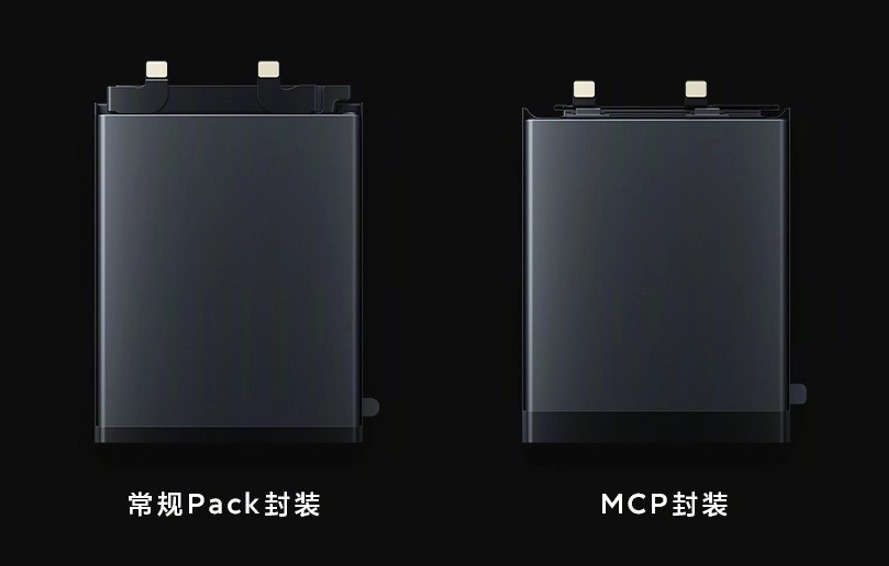Xiaomi would have found a way to improve the autonomy of our smartphones. The manufacturer claims to be able to increase the capacity of the batteries by 10% for the same size.
Without finding a new battery technology to significantly increase the autonomy of our electronic devices, manufacturers have been working for several years now to accelerate their charging. In a few years, our smartphones have gone from 5 or 7 W chargers to 22, 30, 65, even 120 watts in the best case. Xiaomi nevertheless seems to want to shake things up.
A High-Silicon Lithium battery
In a recent post Weibo, the Chinese manufacturer presented its new High-Silicon battery technology. Don’t expect a huge revolution, this is still a Lithium-ion battery, but this improved format could be very interesting if it keeps its promises.
Xiaomi indicates that it has tripled the amount of silicon on the anode (the negative electrode) of the battery and developed a new format to reduce the battery control circuit. In addition, the assembly is coupled with a new artificial intelligence algorithm for energy management.
Result: Xiaomi would have succeeded, according to its statements, in creating a battery with a capacity 10% greater than current technologies for an identical size. According to his statements, this represents 100 minutes more autonomy for our smartphones, or 1h40.
Production in 2022
Xiaomi indicates that the mass production of these batteries will begin in the second half of 2022. It is therefore not to be expected that this technology will be integrated into the Xiaomi 12, but rather on the next generation.
However, one question remains unanswered. Silicon anodes for Li-ion batteries are nothing new, but this technology has been stuck on the sidelines due to lifespan issues. Has Xiaomi succeeded in resolving this concern of drastic loss of capacity over time? We will have to wait for a more complete presentation, or even the first device tests, to find out.
To follow us, we invite you to download our Android and iOS app. You will be able to read our articles, files, and watch our latest YouTube videos.

https://wakelet.com/wake/7n1gpP8rrQ3LzDlFoKbHT
https://peatix.com/user/9184827
https://wakelet.com/wake/hEAEtRmSJXUPKF2a42hj8
https://wakelet.com/wake/3_s5Cw8eTevbIWDBNyGYW
https://peatix.com/user/8847612
https://wakelet.com/wake/7ae00mt3TrRSIGzcoYA7v
https://peatix.com/user/9187163
https://wakelet.com/wake/aFvC82y8wq0rkm1N3geIi
https://wakelet.com/wake/nxDBfitUENHEBZmQBJ311
https://wakelet.com/wake/SEogpNsmKxFVLMLKaZ91P
https://wakelet.com/wake/PNnwiqjGz6utv_aTEDPok
https://wakelet.com/wake/aljCHYsANKNbaSjDIab-9
https://peatix.com/user/8855176
https://wakelet.com/wake/RaIgiwaWo2FfC7lBaOYPj
https://wakelet.com/wake/hR7uDgLiWAqcKOvik0ziA
https://wakelet.com/wake/iCcrdFdFneLrDSIGH1Yey
https://wakelet.com/wake/GpzaY9XQ4rXVy58krG1DI
https://wakelet.com/wake/Ghpwbti4fIu629Cu1y774
https://wakelet.com/wake/Lp68XyTui2xX-iOfRm1SI
https://wakelet.com/wake/CQ4y8LGYfhbsh5gHcNaoJ
https://wakelet.com/wake/23XadHd54R5IjjWsIT5Fo
https://wakelet.com/wake/sYhP2m8JBDC-nMMjZNk7z
https://wakelet.com/wake/tTLjEMb6qFEkA4o8qfjYR
https://wakelet.com/wake/AzFjNmIWmPanBSrnIX8tt
https://wakelet.com/wake/i6MDXs0hlCctgxk_dbj03